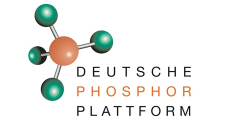Commission official: ‘We want to improve CAP’s agro-environment architecture’

As reported by euractiv, the European Commission is “aiming high” in the post-2020 Common Agricultural Policy (CAP), aware of the need to improve its architecture and links with climate and environment policies. But as the post-Brexit budget will be smaller the member states need to agree to increase their contributions to avoid that the two main EU funding policies – farming and cohesion – suffer cuts.
The complete press report can be found following the link below. Read an abstract here:
The European Commission is “aiming high” in the post-2020 Common Agricultural Policy (CAP), aware of the need to improve its architecture and links with climate and environment policies. But the level of funding that will be available from 2020 is still unknown.
At the start of May, the Commission will present its proposal for the EU budget over the post-2020 Multiannual Financial Framework, and there have been suggestions that farming and cohesion – the two main EU funding policies – might suffer cuts unless member states agree to increase their contributions.
Despite the uncertainties, the Commission has a vision for a revamped CAP and Mihail Dumitru, deputy general director in DG AGRI, presented the outline of the new CAP at an event organised by EURACTIV Romania on 26 March.
“For the next CAP, we are aiming high, we want to improve the agro-environment architecture and we need to strengthen the link between the CAP and other policies, especially the environment and climate policies,” Dumitru emphasised.
“The Commission is trying to convince member states to increase their budget contribution because the post-Brexit budget would otherwise be smaller [than the current one], but we don’t know yet what the final figures will be,” he underlined, adding that there are still divergences between the Eastern European countries and the net contributor states.
Further Information



